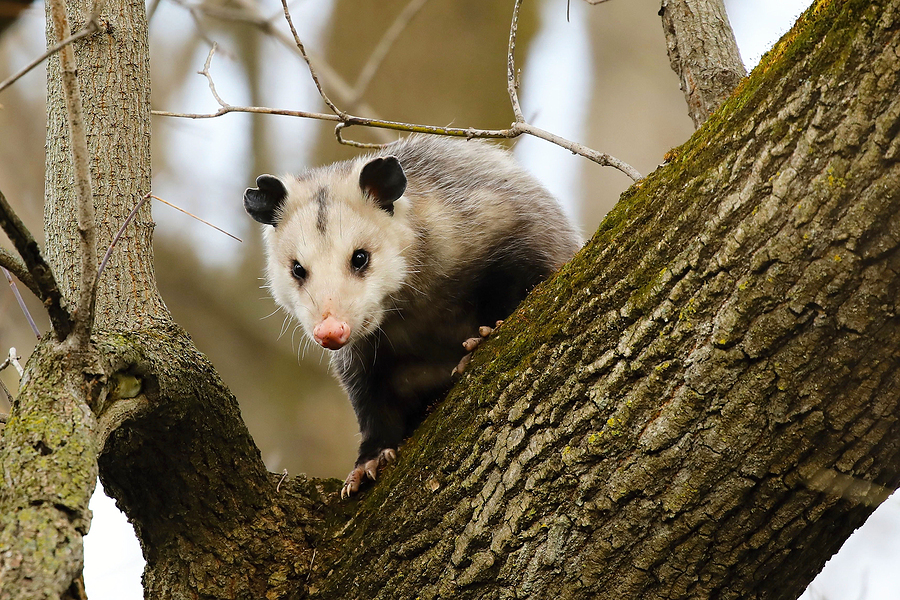Opossums are one of the most misunderstood animals in North America. Despite their reputation for being aggressive and destructive, these curious creatures are actually quite harmless and can be a great asset to any backyard habitat. But if you’re looking to get up close and personal with an opossum, it’s important to understand their behavior so that you don’t accidentally startle them or put yourself at risk.
In this blog post, we will explore the behavior of opossums in the wild, including why they play dead when threatened and how they interact with other wildlife. We’ll also discuss some tips for humanely removing opossums from your property if necessary. By understanding more about these fascinating omnivores, we can all work together towards creating a safe environment for everyone!

Top Opossum Facts You Want to Know!
Opossums are Active From Dusk to Dawn
Opossums are nocturnal animals, which means they’re most active at night. During the day, they spend their time in burrows or dens made of leaves and twigs. At night, they come out in search of food, including insects, fruits, and small rodents. Opossums can also be very territorial when it comes to foraging for food and will fiercely defend an area if needed.
Possums Play Dead
When threatened by a predator or feeling cornered, opossums will often play dead as a defense mechanism. This behavior is known as “playing ‘possum” and is actually quite effective in scaring away potential predators. It involves lying motionless on the ground with eyes closed while emitting a foul smell. This will usually make the predator think the opossum is dead and cause it to flee.
Opossums Reproduce Quickly
Opossums are also unique in that they have one of the shortest gestation periods of any mammal: as little as 12 days! Female opossums carry their young for about two months before giving birth to an average litter size of eight babies. These tiny bundles of fur will cling to their mother’s back until they’re big enough to explore on their own.
Opossums are Usually Solitary
When it comes to interacting with other wildlife, opossums generally keep to themselves. However, if food sources become scarce or competition is fierce, they may be more likely to fight with neighboring animals such as raccoons or even small dogs.
Opossums Do Not Carry Rabies
Contrary to popular belief, opossums are rarely carriers of the Rabies Virus. However, they can still spread other infectious diseases and parasites. These include Leptospirosis, fleas, Lyme disease, ticks, and cocido19 to both humans and animals. Furthermore, their saliva is known to contain a variety of pathogens which can cause skin infection in people with weakened immune systems. Though fortunately human illnesses from these creatures are comparatively rare. The opossum does help maintain healthy ecosystems by feeding on unhelpful insects as well ticks and snails that could otherwise spread illness.
Professional Opossum Removal and Control is Essential
If you find that an opossum has taken up residence on your property, it’s important to remember they are a protected species and must not be harmed in any way. The best option is usually to employ humane methods of removal by contacting a licensed wildlife control company. Once the animal is removed, make sure to close off any potential entry points around the house so that no other opossums can get in.
Conclusion
By understanding more about the behavior of opossums in the wild, we can work together towards creating a safe environment for these fascinating animals and their human neighbors. With a little bit of knowledge and patience, everyone can co-exist peacefully!
Are you dealing with frequent possum visitors to your property? Act now before they can cause any damage or pose any threat! Contact Modern Wildlife Control at 317-847-6409 for safe and effective opossum removal and control in Indianapolis, Indiana. Our wildlife removal services are humane, effective, and available for both residential and commercial clients.
Related Posts:
Best Strategies to Get Rid of Opossums Around Your Property
Are Opossums a Critter Control Problem in the Fall and Winter?
Why Opossums are a Threat to Your Property
